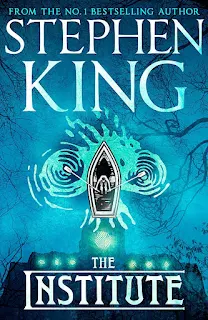The Institute by Stephen King will be akin to coming home for readers familiar with SKs oeuvre. A band of kids working together. An injustice of sorts. A clear bad guy / bad guys situation. A secret government facility. Check check check. Now throw in a touch of supernatural ability in the form of kids with telekinesis or telepathy and you have the basic ingredients of another solid King outing.
The story kicks off when twelve year old Luke Ellis is kidnapped from his home and wakes up at the institute of the title. Luke joins other similarly gifted kids being held at the government sanctioned facility against their will, and they've all been fed the lie they'll be allowed to return home to their families - with their memories wiped of course - after they've served their country.
A familiar pecking order is established as the kids adjust to their surroundings and try to understand what's going on. Naturally there's a little bit of bullying but ultimately firm friendships are formed in true King style, which includes amusing dialogue like this between two of the young characters:
"What if I don't?"As with any King novel, character development is often the highlight and in The Institute a significant character named Tim Jamieson was established early on that I wanted to explore further. I thought he was the primary protagonist but after disappearing for a large chunk of the book, the character later resurfaces but the care factor had diminished by the intervening pages. This left me feeling a little irritated for investing so heavily in his character arc in the early pages.
Nicky smiled. "Then I'll fuck you up, fat boy." Page 135
The purpose of the secret medical facility is to measure and enhance the abilities of the children in a series of medical exams and terribly invasive tests. This definitely gave me Stranger Things vibes and I was surprised to learn The Institute was published in 2019, three years after the release of season 1 of Stranger Things in 2016. Whether either project was influenced by the other, kids being experimented on in the pursuit of harnessing their gifts for the greater good isn't new.
Ultimately King asks the reader to consider whether the sacrifices of a few gifted children and their families outweighs the potential suffering of hundreds, thousands or perhaps in extreme circumstances, even millions of people.
The big showdown at the end of the novel requires the reader to ball up their disbelief and peg it at the nearest oversized telephone and hope for the best. A solid outing from Stephen King.




































